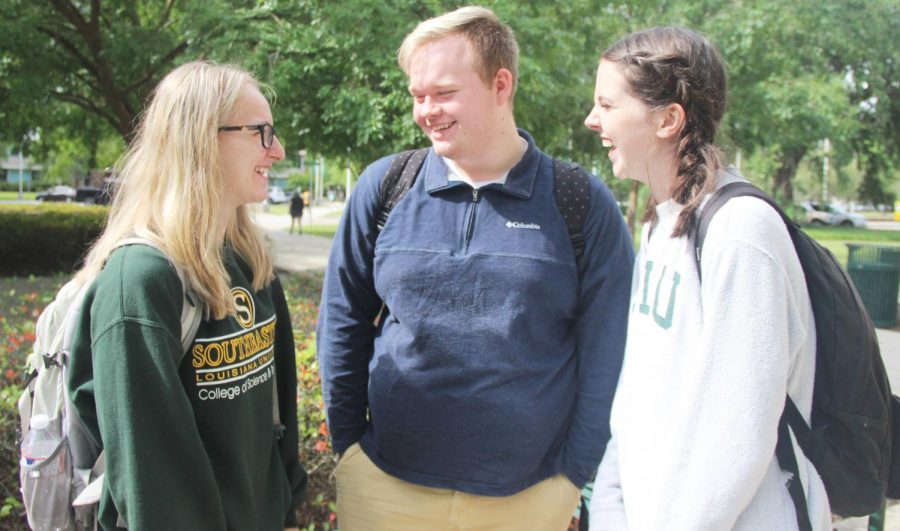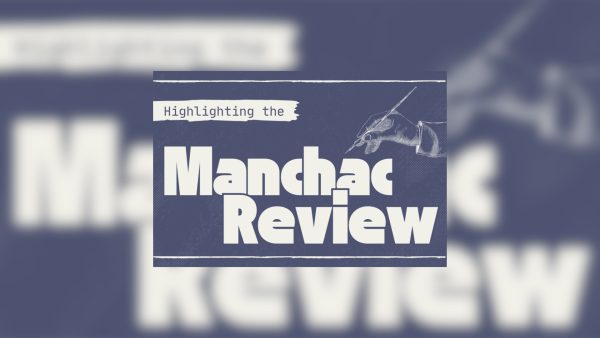Students reflect on their first year in college
Erica Welter/The Lion’s Roar
Whether attending public or private school, or being home-schooled in high school, freshmen experience different transitions when entering college.
Freshmen enter college from various scholastic backgrounds and must learn to integrate into college life.
The National Center for Education Statistics reports about 15 million students attended a public high school and about 1.5 million students attended a private high school in 2015. Over 500,000 high school students were home-schooled in 2016.
Sarah Batrous, a sophomore English major, attended a public high school. She enjoyed her first year of college, but it was an adjustment.
“My freshman year was full of new, exciting experiences and learning opportunities,” said Batrous. “I missed out on a tour of the campus, so finding my classes was difficult at first. However, asking for directions from other students, professors and consulting the online campus map helped greatly.”
Connor Haag, a sophomore nursing major, was home-schooled for high school. Haag found his freshman year both scary and exciting.
“I did not know many people, and it was intimidating at first, but pretty soon, I was able to find my niche and really enjoy the college experience,” explained Haag.
Haag described scheduling and personal responsibility as the biggest challenges of his freshman year.
“I overcame that challenge of time management my freshman year by making connections with other people and forming study groups and making friends to try and help better each other in the class and keep each other accountable with homework and assignments,” stated Haag. “It really helped to have a group of people who were in the same boat as you and just trying to pass.”
Kamryn Fouts, a freshman biological sciences major, attended an all-girls, private school. She referred to her freshman year as a roller coaster ride where the pros outweighed the cons.
Fouts shared that it was challenging for her to maintain her social life, extracurricular activities and grades.
“Being a cheerleader for SLU gave me a pretty busy schedule, so keeping up my grades and social life was not as easy as I thought it would be,” shared Fouts. “I have learned how to manage it since then.”
As students settle into their collegiate studies, they may recognize noticeable differences between their college and high school experiences.
During her first year, Batrous discovered that college life meant she had more control over her daily activities.
“In college, I learned how to schedule classes in times that are best for me,” said Batrous. “I also learned that my lunches and snacks can be anything I would like now. Goodbye, high school cafeteria food.”
Haag enjoyed the freedom to explore his interests through employment opportunities and student organizations.
“A difference I noticed was that in college you can really discover what your passions are in life,” stated Haag. “There are so many different opportunities from organizations, clubs, jobs, and many other opportunities to find what interests you have besides your degree.”
For Fouts, the most notable difference has been the amount of time spent out of class.
“The biggest change was not being in school for eight hours a day, and I wasn’t really sure what to do with all that free time,” explained Fouts. “Cheering helped fill some of that time, but I still had free time that I wasn’t really used to.”
Of the programs and services offered to assist students in their transition from high school to college life, the university’s orientation program teaches students about policies and procedures, helps them register for classes and gives them the chance to meet faculty and staff members.
Batrous credited her teachers and friends for making her freshman year more helpful.
“Having such kind and understanding instructors my freshman year helped me settle into college life quickly,” shared Batrous. “Making new friends in my classes and finding old friends from high school to connect with also made the transition easier.”
Haag’s transition was made smoother by a student worker in University Housing.
“My resident assistant on the floor of my hall made my transition so much easier,” said Haag. “He was there to talk to me and answer any questions I had and was able to show me where various different resources on campus were and how to get involved.”
As Fouts’ freshman year draws to a close, she believes the success of her transition is multifaceted.
“Everyone on campus has been very helpful even if I didn’t know them,” stated Fouts. “I think some of the biggest things were SE 101 and my freshman advisor Mrs. Mindy, and then being a part of the SLU cheerleading squad helped with my transition because I could just ask my teammates for help.”
Your donation will support The Lion's Roar student journalists at Southeastern Louisiana University.
In addition, your contribution will allow us to cover our annual website hosting costs.
No gift is too small.





